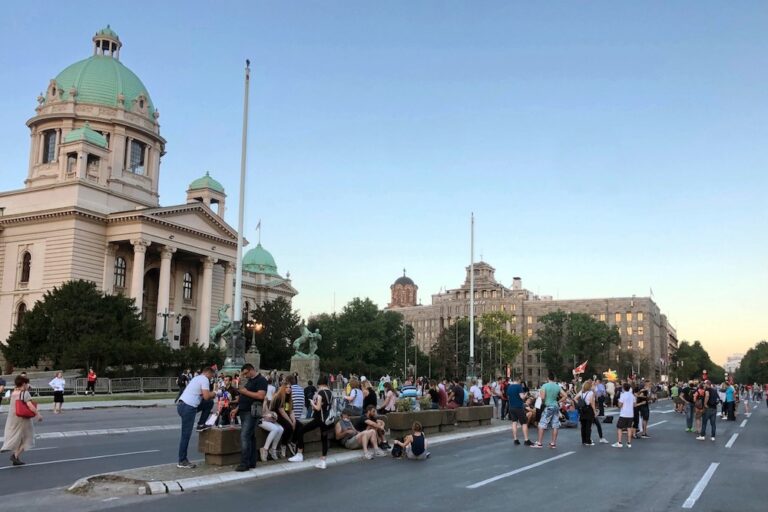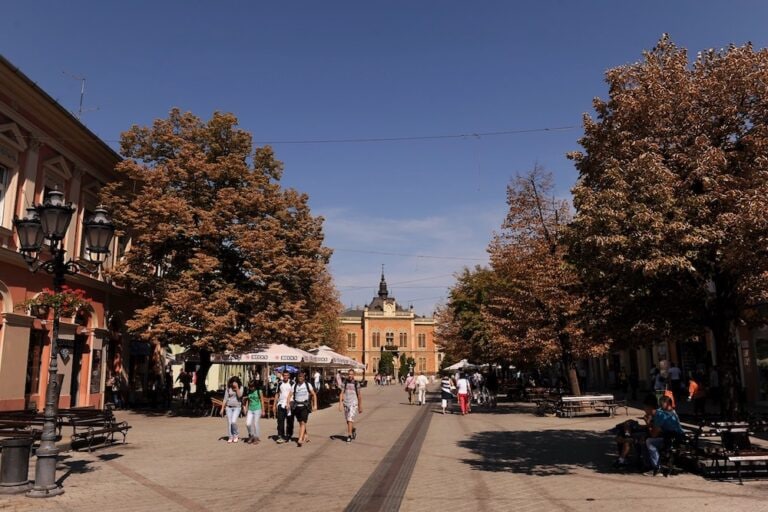On 9 December 1999, Flora Brovina, an ethnic Albanian poet, paediatrician and women’s rights activist, was sentenced to twelve years in prison in a court in Nis, Serbia. International PEN considers Brovina to be convicted solely for her condemnation of Serb human rights abuses in Kosovo, and for her humanitarian work in Pristina before and […]
On 9 December 1999, Flora Brovina, an ethnic Albanian poet, paediatrician and women’s rights activist, was sentenced to twelve years in prison in a court in Nis, Serbia. International PEN considers Brovina to be convicted solely for her condemnation of Serb human rights abuses in Kosovo, and for her humanitarian work in Pristina before and during the NATO bombardment of Serb forces in the region. It is calling for her release.
Brovina was convicted of “terrorism”, the key accusation being that she provided medical attention to members of the Kosova Liberation Army (KLA). She was also accused of providing uniforms to the KLA. Amnesty International referred to the trial evidence being extremely weak based mainly on statements made by Brovina under duress. On 9 December, she claimed in court that she had been subjected to eighteen sessions of interrogation that lasted from early morning to 5pm, without breaks or food. She said that she was so exhausted that she would have signed anything. She added that her statement made under interrogation had not been read out to her before she signed it. Even a prosecution witness giving evidence at the court admitted that medical material confiscated from Brovina’s clinic could have been used in peace-time as well as war, and added that KLA officials had sought and received treatment in Pristina Hospital.
The trial has led to widespread condemnation both inside and outside Serbia. Amnesty International condemns the decision as “outrageous” and considers that Brovina is being made an example of by the Serb authorities. The Serbian PEN Centre, which was among a number of local non-governmental organisations and international observers to Brovina’s trial, issued a public statement which was carried in the Belgrade daily newspapers “Glas” and “Danas”. It referred to the continuing tensions within Kosovo where attacks are being carried out against the remaining Serb population, most notably the murder in late November of Serb professor Dragoslav Basic. Professor Basic was travelling in his car in Pristina with his wife and mother-in-law when he was stopped by a group of ethnic Albanians who dragged him from the vehicle and shot him dead. The two women were also pulled from the car and beaten as ethnic-Albanians stood by. Serbian PEN sees Brovinaâs conviction as exacerbating the “increasingly difficult position of Serb inhabitants” in Kosovo. It stated that “[Dr Brovina] should not be convicted for carrying out her duty as a doctor. The conviction will not prevent the further persecution of the Serbs in Kosovo but will aggravate their position even more”. The Centre called for good will to be put in practice by both sides towards an end to “the spreading of hatred and revenge”. It called on the Serb authorities to order Brovina’s release.
Recommended Action
Send appeals to authorities:
– condemning outright the twelve-year sentence against Brovina who is held solely because of her legitimate and non-violent humanitarian activities and for her long-running campaign against Serb abuses in Kosovo
– calling for her immediate and unconditional release
Appeals To
APPEALS TO:
His Excellency Slobodan Milosevic
President of Yugoslavia
Savezna Skupstina
11000 Belgrade
Federal Republic of Yugoslavia
Fax: + 381 11 636 775
For those meeting difficulties with this contact number, try:
Zivadin Jovanovic
Minister of Foreign Affairs
Fax: + 381 11 367 2954
PEN also recommends that letters of protest be sent to the Serb embassies in your own countries.
Please copy appeals to the source if possible.


